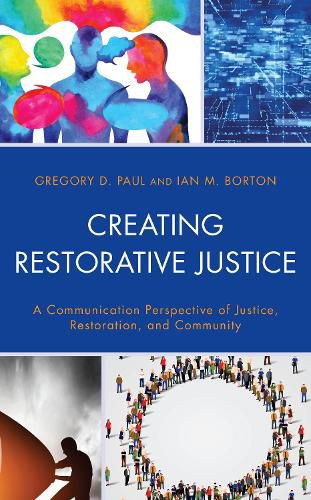Readings Newsletter
Become a Readings Member to make your shopping experience even easier.
Sign in or sign up for free!
You’re not far away from qualifying for FREE standard shipping within Australia
You’ve qualified for FREE standard shipping within Australia
The cart is loading…






Discussion of the histories, meanings, and assumptions of restorative justice have enriched the development of its theory, research, and practices. While some of this work has addressed the role of communication, the treatment of communication within restorative justice remains rather under-developed. Communication plays a central role in processes of restoration and justice and a constitutive role in making restorative justice what it is. In Creating Restorative Justice: A Communication Perspective of Justice, Restoration, and Community, Gregory D. Paul and Ian M. Borton argue that by centering communication in restorative justice as it occurs in various contexts (from families, to schools, to communities), we can simultaneously deepen our understanding, enrich our practice, and amplify our study of restoration and justice. From a communication perspective, restorative contexts both use and are created by the communication present. Any outcomes from restorative processes are thus the product of the communication both within and between restorative practices' participants. As the world addresses the challenges presented by injustice, inequality, and insecurity, it is incumbent we expand our understanding of restorative processes to account for the vital role of communication.
$9.00 standard shipping within Australia
FREE standard shipping within Australia for orders over $100.00
Express & International shipping calculated at checkout
Discussion of the histories, meanings, and assumptions of restorative justice have enriched the development of its theory, research, and practices. While some of this work has addressed the role of communication, the treatment of communication within restorative justice remains rather under-developed. Communication plays a central role in processes of restoration and justice and a constitutive role in making restorative justice what it is. In Creating Restorative Justice: A Communication Perspective of Justice, Restoration, and Community, Gregory D. Paul and Ian M. Borton argue that by centering communication in restorative justice as it occurs in various contexts (from families, to schools, to communities), we can simultaneously deepen our understanding, enrich our practice, and amplify our study of restoration and justice. From a communication perspective, restorative contexts both use and are created by the communication present. Any outcomes from restorative processes are thus the product of the communication both within and between restorative practices' participants. As the world addresses the challenges presented by injustice, inequality, and insecurity, it is incumbent we expand our understanding of restorative processes to account for the vital role of communication.